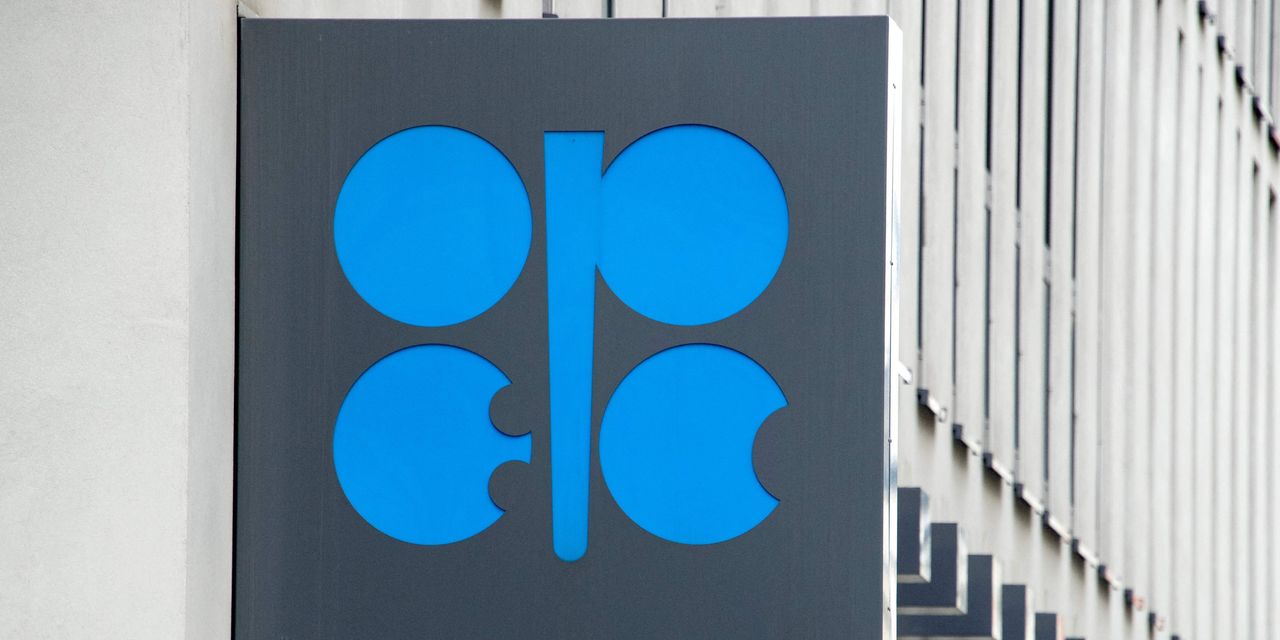Oil futures settled with a modest gain on Monday, after Saudi Arabia over the weekend agreed to deliver an additional 1 million–barrel daily production cut next month as the Organization of the Petroleum Exporting Countries and its allies moved to extend existing production targets.
Price action
-
West Texas Intermediate crude for July delivery
CL00,
-0.30% CL.1,
-0.30%
CLN23,
-0.30%
climbed 41 cents, or 0.6%, to settle at $72.15 a barrel on the New York Mercantile Exchange, after trading as high as $75.06 Sunday evening. -
August Brent crude
BRN00,
-0.42% BRNQ23,
-0.42% ,
the global benchmark, gained 58 cents, or 0.8%, to settle at $76.71 a barrel on ICE Futures Europe. -
Back on Nymex, July gasoline
RBN23,
+1.35%
rose nearly 1% to $2.52 a gallon, while July heating oil
HON23,
-0.19%
added 0.9% at $2.38 a gallon. -
July natural gas
NGN23,
+0.80%
rose 3.4% to $2.25 per million British thermal units.
Market drivers
Saudi Arabia on Sunday said it would cut oil output by 1 million barrels a day in July, and that the reduction could be extended if needed. The announcement came as OPEC+ agreed to extend current production levels through the end of 2024 at a contentious meeting in Vienna.
See: Saudis to cut oil production by 1 million barrels a day in July as OPEC+ extends output deal
“Spurring a bout of short-covering via a further surprise cut appears the best way to spur a relief rally but for now, the response by oil prices has been exceptionally tepid, “said Matt Smith, lead oil analyst, Americas, at Kpler.
Read: Saudi Arabia’s planned oil cut could lead to ‘cracks’ within OPEC+ — but not a spike in gasoline prices
OPEC+ agreed last October to cut production by 2 million barrels a day. Some OPEC+ members in early April announced further cuts totaling 1.6 million barrels a day through year-end, including 500,000 barrels a day in reductions by Saudi Arabia.
Saudi Energy Minister Abdulaziz bin Salman last month warned that short sellers should “watch out” and that they would be “ouching” much as they did in early April, when the surprise cuts caused a sharp, but short-lived, spike in crude prices.
The outcome of the meeting reinforces Saudi Arabia’s “uneasiness with the level of short positions in the market rather than signaling concerns around demand outlook,” said Giacomo Romeo, energy equity analyst at Jefferies, in a Sunday evening note to clients. “The open-ended part of the measure was likely put in place to discourage future short positioning.”
Analysts said bears didn’t appear to be that intimidated. Crude popped sharply higher at the open Sunday evening, but soon trimmed gains with prices settling Monday with a gain of less than 1%.
Read the full article here





